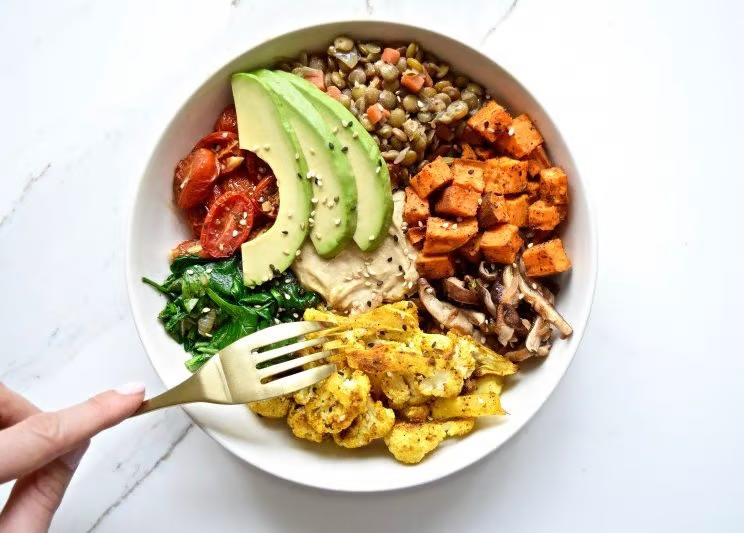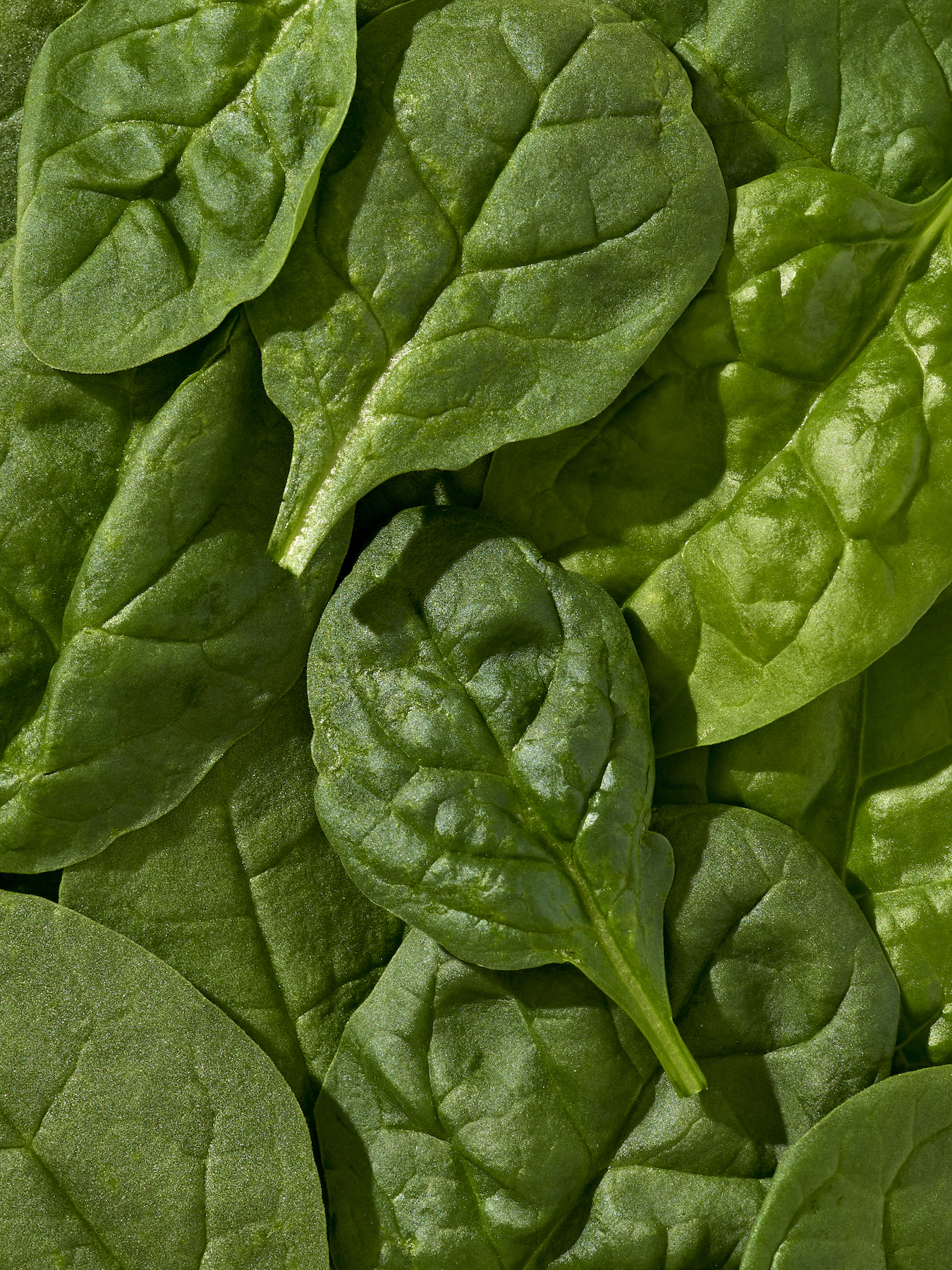Pescatarian Diet: What is it + Recipes
Many individuals gravitate towards the pescatarian diet to reduce their meat consumption, especially from land animals, while still achieving their health goals and nutritional needs. Integrating seafood into a diet rich in plant-based foods provides essential fatty acids often praised for reducing the risk of chronic issues like heart disease. Besides, who can resist the mouth-watering appeal of a perfectly grilled salmon or a zesty shrimp salad?
In this guide, we'll dive deeper into the many health benefits of this dietary approach. We'll showcase tasty recipes that even the most ardent meat lovers find hard to resist. And for those who lean more towards a flexitarian diet, don't fret! We'll discuss ways to seamlessly balance a mix of plant-based foods and seafood into your dietary habits, whether you're a seasoned pescatarian, someone curious about reducing meat consumption, or merely looking to diversify your culinary tastes.
Do you find yourself constantly on the go but still want to indulge in healthy foods? The expert chefs at Hungryroot have crafted various delicious recipes, including pescatarian recipes and groceries delivered straight to your doorstep. Whether juggling work, family, or other commitments, Hungryroot helps you enjoy mouthwatering foods without compromising your health goals. Get started today by taking our personalized quiz and start your health journey right from day one!
What is the pescatarian diet?
The pescatarian diet combines the principles of a vegetarian diet while including a mix of seafood. Individuals following this diet typically abstain from consuming meat such as beef, pork, and poultry. However, they embrace a variety of fish and seafood, from salmon and tuna to shrimp and mussels, as part of their regular meals.
Besides seafood, pescatarians consume diverse plant-based foods, including fruits, vegetables, grains, nuts, seeds, and legumes. Dairy and eggs are also typically included, though this can vary based on personal preferences. While the core emphasis is on whole foods, it's essential to note that, like any diet, the quality of choices matters. Opting for sustainably sourced seafood and reducing the intake of heavily processed foods can help pescatarians maximize the health benefits of their chosen diet.
The Mediterranean and flexitarian diets are two other popular dietary choices that are similar to the pescatarian diet. The Mediterranean diet, inspired by the traditional dietary habits of countries bordering the Mediterranean Sea, emphasizes the consumption of whole foods like fruits, vegetables, whole grains, olive oil, fish, and moderate amounts of poultry and wine. It's highly regarded for its potential cardiovascular benefits and its association with longevity. On the other hand, the flexitarian diet is more balanced, combining the principles of a vegetarian diet with occasional meat consumption. It offers flexibility, allowing individuals to reduce meat intake without eliminating it, which can be appealing to those wanting to make more ethical food choices without a strict commitment.
Compared to the pescatarian diet, which is strictly plant-based with the addition of seafood, Mediterranean and flexitarian diets can include a broader variety of animal proteins. However, all three diets share a common emphasis on whole foods and plant-based eating. The main difference lies in the sources and frequency of animal protein consumption. For instance, while a pescatarian might opt for salmon or shrimp as their primary source of protein, a flexitarian might occasionally choose chicken, and someone on the Mediterranean diet might include both but with a focus on fish and moderate amounts of poultry. Choosing among these diets often hinges on individual health goals, ethical considerations, and personal food preferences.
What are the benefits of the pescatarian diet?
The pescatarian diet has become increasingly popular for its delicious array of recipes and its numerous health benefits.
One of the most significant benefits of the pescatarian diet is its potential impact on heart disease. Research suggests that the intake of fish, which is rich in essential fatty acids like omega-3, can lower the risk of heart disease. These essential fatty acids, often lacking in purely vegetarian and vegan diets, play a crucial role in brain function and can help regulate cholesterol levels. The American Heart Association even recommends at least two servings of fish per week, primarily due to its benefits for heart health.
Furthermore, the pescatarian diet's emphasis on plant-based, whole foods, including fruits rich in vitamin C, vegetables, grains, and legumes, has been linked to better blood pressure management. High blood pressure, a key symptom of metabolic syndrome, can be lowered by the nutrients found in these foods. The shift from consuming red meat, often associated with elevated cholesterol and other health issues, further underscores the potential benefits of the pescatarian diet.
Beyond the health advantages, many individuals are motivated to adopt the pescatarian or flexitarian diet due to ethical concerns surrounding animal protein consumption. The production of meat products has been criticized for its environmental impact, treatment of animals, and sustainability issues. By reducing or eliminating meat consumption, individuals can align their dietary habits with their ethical values while reaping the health rewards of a diet rich in seafood and plant-based foods.
While the pescatarian diet offers many benefits, from heart health to ethical consumption, ensuring that it fits your unique needs is always essential. It's important to note that not all seafood is equal. Concerns about mercury levels in certain fish, especially for pregnant women, have been raised, and consulting with a registered dietitian or a healthcare provider is recommended. A dietitian or nutritionist can provide insights tailored to individual needs, ensuring the diet meets your body’s needs.
Our Favorite Pescatarian Friendly Recipes

Caesar Salmon + Spinach Salad With Potatoes: This hearty salmon salad recipe will have you returning for seconds. The tender Atlantic salmon filets, seasoned and baked until tender, pair exquisitely with the refreshing baby spinach. Multicolored creamer potatoes balance the rest of the dish, and a generous drizzle of vegan Caesar dressing adds tangy and creamy flavors. The salmon, rich in essential fatty acids, offers a substantial protein boost, while the baby spinach provides vitamins and minerals, most notably iron. With a thoughtful balance of macronutrients and a calorie count of 610 per serving, this salad will keep you satisfied all day.

Wild-caught shrimp + Asparagus with Cauli Mash: This shrimp and cauli mash meal offers a low-carb, filling pescatarian meal option. Tender gulf shrimp are sauteed and paired with freshly seared asparagus. The cauliflower mash offers a delightful flavor and is a lower-carb alternative to traditional potato mash. The shrimp delivers a substantial protein boost, while the asparagus is packed with essential vitamins and dietary fiber to promote gut health. With only 400 calories per serving, this meal embodies the principles of balanced, wholesome pescatarian eating.

Lemony Avo Tuna Salad Lettuce Wraps: Perfect for a light and refreshing lunch, these tuna salad wraps offer a vibrant fusion of hearty and refreshing textures. Wild Ahi tuna blends well with the mashed avocado's creamy, buttery texture, and the zest of fresh lemon juice provides a burst of citrusy brightness to balance the tuna and avocado's richness. The super blend salad, featuring a variety of nutrient-rich lettuce and cabbage, adds a crunchy texture.. The super blend salad and lettuce introduce fiber, vitamins, and minerals, while the low-calorie count of 250 per serving ensures the meal remains light yet fulfilling.

Jewel of The Ocean Couscous: This dish is a well-rounded pescatarian option blending the richness of heart-healthy couscous and the refreshing flavors of shrimp and tomatoes. The light and fluffy texture of tri-color pearled couscous complements the wild-caught Gulf shrimp. Adding juicy grape tomatoes offers natural sweetness and a touch of acidity, perfectly balancing the heartiness of the dish. The entire dish is tied together with a classic chimichurri sauce that adds zesty and herbaceous notes to the plate. The Gulf shrimp is an excellent source of lean protein, while the couscous contributes complex carbohydrates essential for sustained energy throughout the day. With a calorie count of 410 per serving and a balance of carbohydrates, protein, and fats, this dish is a treat to the taste buds and a testament to balanced and healthy eating.

Seared Rainbow Trout Summer Succotash: Bring the feeling of summer into your pescatarian lifestyle with this seared trout and succotash recipe. The dish features tender rainbow trout filets and refreshing zucchini, and the cucumber corn black bean salad infuses the dish with vibrant and crisp flavors. The rainbow trout is packed with lean protein and rich in omega-3 fatty acids, which is beneficial for heart health. The bean salad, rich in dietary fiber, aids digestion and sustains energy. This dish is both nutritious and satisfying, making it an excellent choice for those seeking a balanced pescatarian option.

Creamy Shrimp + Spinach Linguine: This recipe marries the rich flavors of gulf shrimp with the earthy notes of baby spinach, combined with a delicious cauliflower linguine base. The creamy and tangy spinach artichoke sauce elevates the dish, enhancing the flavor profile. The linguine, made from cauliflower, offers a twist to the traditional pasta, and the baby spinach enriches the meal with vitamins and iron, essential for red blood cell function and immunity. With a well-rounded nutrition profile, this recipe is a great choice for individuals seeking a hearty yet balanced pescatarian dish.
We genuinely hope this guide has armed you with the essentials to embark on your pescatarian journey with confidence and excitement. We hope our curated recipes can serve as a testament to the versatility of the pescatarian diet. From the creamy indulgence of shrimp linguine to the refreshing burst of tuna lettuce wraps, a world of flavors is waiting for you to explore!
To maintain a healthy pescatarian diet, it's crucial to incorporate variety into your meals. Diversify your seafood intake to include different fish and shellfish to get a broad spectrum of nutrients. Pair these with colorful vegetables, whole grains, and healthy fats to amplify the health benefits. Always be conscious of sourcing sustainably caught or farmed seafood to ensure the well-being of our oceans. With these tips and the recipes provided, you're well on your way to enjoying the benefits of a balanced pescatarian lifestyle.
We know life can get hectic, but sticking to your healthy lifestyle should be easy. That's why Hungryroot brings custom-selected, healthy groceries that magically turn into delicious recipes delivered right to your door. Our seamless process frees up valuable time and helps you effortlessly embrace a healthy lifestyle. Let us be your trusted partner on your journey to health — because you deserve to feel good, inside and out.
Start your health journey by taking our personalized quiz to get your recipe and grocery recommendations.
Recommended Reading




